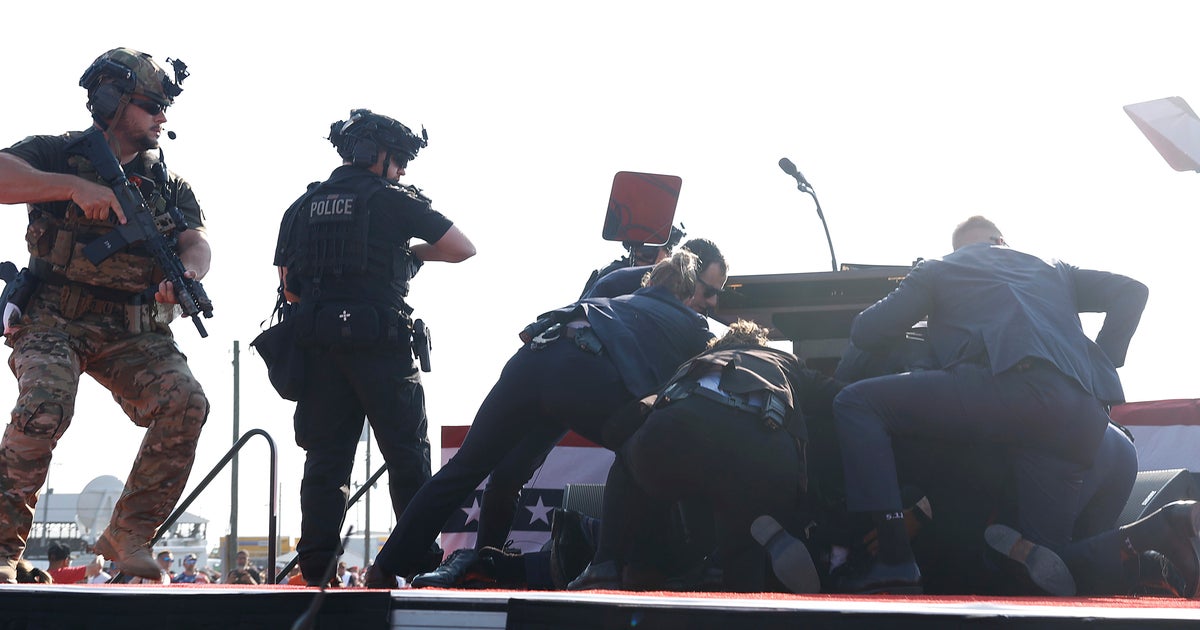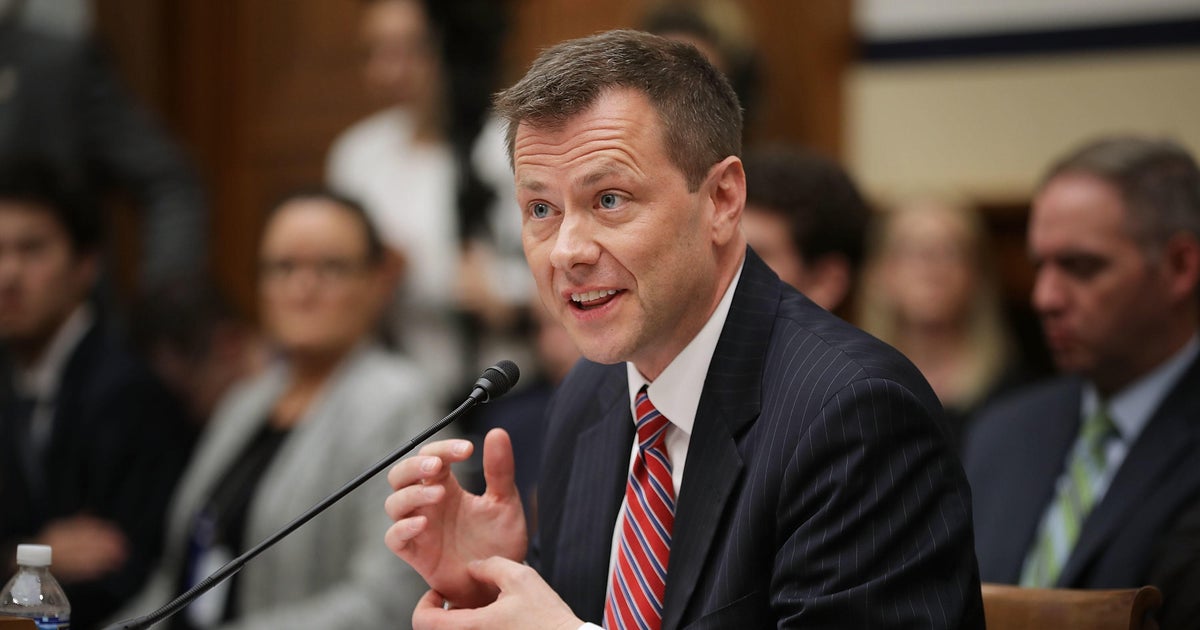Rex Tillerson grilled on ExxonMobil conflicts, Russia sanctions, climate change at confirmation
Rex Tillerson faced an aggressive line of questioning Wednesday from senators about his possible conflicts involving ExxonMobil, his position regarding U.S. sanctions against Russia and his views on climate change.
In testimony at his confirmation hearing before the Senate Foreign Relations Committee, Tillerson stressed that the Trump administration is focused on reasserting and renewing U.S. leadership around the world as a superpower, which is an approach that he said the Obama administration has withdrawn from.
Tillerson, 64, acknowledged that he would become the nation’s chief diplomat at a “pivotal time” and listed a number of “considerable threats” that the U.S. faces, including Russia. He said, “We aren’t likely to ever be friends...our value systems are starkly different.”
“China has emerged as an economic power in global trade, and our interactions have been both friendly and adversarial. While Russia seeks respect and relevance on the global stage, its recent activities have disregarded American interests,” he said. “Radical Islam is not a new ideology, but it is hateful, deadly, and an illegitimate expression of the Islamic faith. Adversaries like Iran and North Korea pose grave threats to the world because of their refusal to conform to international norms.”
A native of Texas, Tillerson was favorably introduced to the panel by Sens. John Cornyn, R-Texas and Ted Cruz, R-Texas, former Sen. Sam Nunn, R-Georgia and former Defense Secretary Bob Gates.
ExxonMobil conflicts
Tillerson signaled what he plans to do initially as secretary of state on issues that involve ExxonMobil, where he was the CEO from 2006 to 2016 and where he worked for the last four decades.
“If confirmed as secretary of state, I would recuse myself from those issues,” Tillerson said. “I’ve made clear in my disclosures, and I think in answers to questions that have been posed, that obviously there’s a statutory recusal period, which I will adhere to, on any matters that might come before the State Department that deal directly and specifically with ExxonMobil.”
The recusal period, however, only applies for one year, and was therefore asked if he would recuse himself for the remainder of his tenure as secretary of state. Tillerson said that for any matter after the first year that involves Exxon, he would “seek the guidance of the ethics counsel” and honor their advice.
Sanctions targeting Russia
Both Democrats and Republicans on the panel grilled Tillerson about his position on U.S. sanctions that the Obama administration has imposed against Russia in response to its 2014 annexation of Crimea and its recent cyberattacks in an attempt to influence the election.
He didn’t directly answer questions about whether he would advise President-elect Donald Trump to reverse those sanctions imposed in retaliation for hacking. “If confirmed, senator, I would want to examine it and all aspects of it.” He also said he would want to maintain “the status quo until we are able to develop what our approach is going to be.”
Lawmakers questioned what appeared to be contradictory statements Tillerson has made about the effectiveness of sanctions. Asked if he has changed his view on sanctions, Tillerson said, “When sanctions are imposed, they are, by design, going to harm American business.” He then said that sanctions are “a powerful tool” and that the U.S. must design them, target and enforce them well.
The most prevalent question from members focused on whether Tillerson and Exxon, under his leadership, lobbied the government against the implementation of sanctions.
“I never lobbied against the sanctions,” Tillerson said. “The characterization that ExxonMobil lobbied against the sanctions is just not accurate.”
He stated that Russia has no legal claims to Crimea, but he criticized the Obama administration for not executing a strong enough strategy in response to Russia’s annexation of that territory. Tillerson said that Russian leadership would have understood a “powerful response” such as a more robust supply of U.S. military assets.
“I would have recommended that the Ukraine take all of its military assets it had available, put them on that eastern border, provide those assets with defensive weapons that are necessary just to defend themselves, announce that the U.S. is going to provide them intelligence and that either NATO or U.S. will provide air surveillance over the border to monitor any movements,” Tillerson said.
Russian interference in the 2016 presidential election
In a tough line of questioning, Sen. Marco Rubio, R-Florida, a 2016 GOP presidential candidate, asked Tillerson if he believes that Russian President Vladimir Putin worked to influence the 2016 election, spread fake news, denigrate Hillary Clinton as the Democratic presidential nominee and worked to help Mr. Trump’s chances.
Tillerson said he has not received any classified briefings yet because he has not received his clearance yet, but that he did read the unclassified report that the intelligence community released last week on Russia’s interference in the election.
“That report, clearly, is troubling and indicates that all of the actions you just described were undertaken,” Tillerson said.
Tillerson was also asked about the two-page addendum to the intelligence community’s Russian hacking report that said Russia had tried to compromise the president-elect. Tillerson said he had not been briefed on the allegations and was not sure if Mr. Trump had been either. Asked if the FBI should be allowed to investigate those allegations for accuracy, Tillerson said, “I think I would leave that to those agencies to determine.”
Cyber policy
Tillerson said that the “great and most complex threat” that the U.S. is facing today is in the cybersecurity realm. He said that the U.S. is “extraordinarily vulnerable” and has not built sufficient defensive infrastructure.
He said that the Trump administration should “put in place a comprehensive strategy for dealing with cybersecurity and cyber threats.” That policy should encompass, he said, appropriate norms for cyber behavior, appropriate use for cyber information and an acceptable response when those norms are violated.
Vladimir Putin
During the hearing, Rubio asked Tillerson if he believes that Russian President Vladimir Putin is a war criminal.
“I would not use that term,” Tillerson said.
Rubio told Tillerson that Putin has ordered the murder of dissidents, political opponents and journalists and asked Tillerson if he agrees with that assessment.
“I do not have sufficient information to make that claim,” Tillerson said, adding that sometimes such incidents occur when people speak up for freedom in oppressive regimes. “In terms of assigning specific responsibilities, I would have to have more information.”
Sen. Tim Kaine, D-Virginia, Hillary Clinton’s vice presidential running mate, asked Tillerson if he is aware of any financial connections between Mr. Trump or his associates with Russian individuals or organizations.
“I have no knowledge,” Tillerson said.
Muslim ban, Muslim registry
Tillerson was asked to share his view on Mr. Trump’s original proposal to ban Muslims from entering the U.S.
“No, I do not support a blanket-type rejection of any particular group of people,” he said.
Asked if he would support a U.S. registry for Muslims, Tillerson said, “I would need to have a lot more information over how such an approach would even be constructed.” He added that if such a registry were used as a tool for vetting, he said it would probably extend to other groups.
Sen. Cory Booker, D-New Jersey, later pressed Tillerson on the registry again and Tillerson said, “I do not support targeting any particular group,” but he still seemed to leave the door open to some sort of database used for vetting people.
Defeating ISIS
Tillerson said that the U.S. must be “honest” about “radical Islam” and emphasized that one of the top priorities for the Trump administration is to defeat the Islamic State in Iraq and Syria (ISIS). If confirmed as secretary of state, he also said he would ensure that the State Department does its part to support Muslims around the world “who reject radical Islam in all its forms.”
Tillerson said defeating ISIS requires advanced capabilities with U.S. communication tools to disrupt the group’s communication tools like the Internet. Tillerson also made the point that defeating ISIS in Iraq and Syria won’t get rid of the group once and for all: “It will simply morph to its next version.”
Climate change
Tillerson was pressed to clarify his views about climate change -- an issue which he said he came to a conclusion on a few years ago. He said that the risk of climate change does exist and it’s significant enough to merit action. Asked if he believes human activity has led to climate change, Tillerson said that the increase in greenhouse gas emissions “are having an effect.”
“Our ability to predict that effect is very limited,” he said.
Tillerson was also asked about his stance on the Paris climate agreement that was negotiated under the Obama administration. “We’re better served by being at that table than leaving that table,” Tillerson said, which stands in direct contrast to Mr. Trump’s previous remarks in which he said he’d want to “cancel” the deal.
North Korea
Tillerson said that he would maintain U.S. sanctions against North Korea and criticized the Obama administration for what he described as a failure “to enforce existing sanctions regimes” including those overseen by the United Nations.
Israel
Tillerson blasted the Obama administration’s decision last month to abstain during the vote on the U.N. Security Council resolution regarding Israeli settlements in the West Bank.
“Israel is, has always been, and remains our most important ally in the region,” Tillerson said.
The resolution, he said, was “not helpful” and undermines the prospects for direct negotiations between Israel and the Palestinians. Tillerson said that Secretary of State John Kerry’s subsequent speech about the importance of still pursuing the two-state solution was “quite troubling because of the attacks on Israel.”
Iran nuclear deal
On the Iran nuclear deal, Tillerson said if he’s confirmed, he would do a “full review of that agreement as well as any number of side agreements that, as I understand, are part of that agreement.”
Tillerson said that he’d like to know whether Iran is complying with the agreement and would like to review the verifiability that Iran is complying. He said that the current deal freezes Iran’s ability to develop a nuclear weapon, but he said it doesn’t deny Iran the ability to buy one.
“What comes at the end of the agreement,” Tillerson said, is what he’d like to evaluate.
He was also asked about a report from USA Today this week that said a subsidiary of Exxon did business with Iran, bypassing U.S. sanctions against Iran, under Tillerson’s leadership. Asked if he had any memory of this situation, Tillerson said, “I do not.”
Trade deals
Tillerson was asked about whether he agrees with Mr. Trump that NAFTA and the Trans-Pacific Partnership (TPP) were big mistakes. Tillerson said Mr. Trump’s issue that he has with NAFTA is that it’s been in place for a few decades now and should be reviewed.
“I do not oppose TPP,” Tillerson said. “I share some of [Mr. Trump’s] views...whether the agreement that was negotiated serves all of American interests at best.”
Cuba
On the Obama administration’s new policies regarding travel to and business with Cuba, Tillerson said he would do a complete review of recent executive orders from President Obama.
Asked if he would advise Mr. Trump to veto a bill seeking to lift the U.S. embargo on Cuba, Tillerson said, “If confirmed, yes, I would.”
Tillerson, however, did not give Rubio an answer regarding whether Cuba belongs on the U.S. state sponsors of terrorism list.





